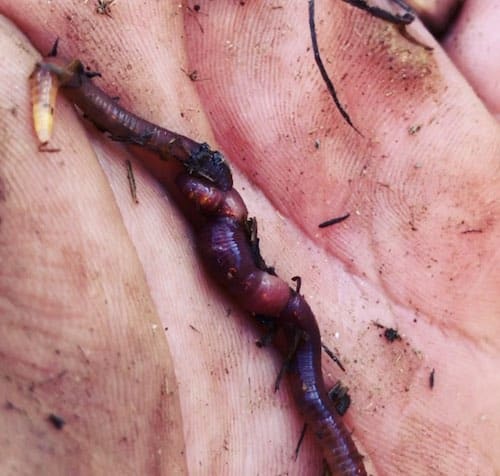Red Wiggler Worms - Boost Your Soil Health Normally
Red Wiggler Worms - Boost Your Soil Health Normally
Blog Article
Red Wiggler Worms Demystified: Opening the Tricks of Vermiculture for Greener Living and Nutrient-Rich Soil
In the world of sustainable methods for enriching dirt high quality and promoting eco-conscious living, red wiggler worms play a pivotal yet frequently forgotten duty. These simple creatures have the amazing ability to transform organic waste into nutrient-rich spreadings that act as a potent all-natural fertilizer. By diving into the world of vermiculture, one can uncover a variety of benefits that expand far past standard composting methods. Recognizing the ins and outs of caring for these worms, enhancing their environment, and using their castings can bring about a greener lifestyle and much healthier soil for plants to grow.
The Role of Red Wiggler Worms
Red Wiggler worms play a crucial duty in composting systems by effectively damaging down organic matter right into nutrient-rich spreadings. These voracious eaters consume a selection of organic materials, such as cooking area scraps, backyard waste, and paper items. As they feed, the worms' gastrointestinal processes damage down the organic matter right into a penalty, dark, and nutrient-dense product called worm spreadings or vermicompost.
The spreadings generated by Red Wiggler worms are highly helpful for soil health and wellness and plant development. They are abundant in crucial nutrients like phosphorus, nitrogen, and potassium, which are crucial for supporting healthy and balanced plant growth. In addition, worm spreadings have advantageous microbes and enzymes that aid improve soil structure, increase water retention, and enhance nutrient uptake by plants.
Benefits of Vermicomposting

It boosts dirt structure, enhances dirt oygenation, and enhances soil wetness retention. Vermicompost additionally enriches the soil with necessary nutrients like phosphorus, potassium, and nitrogen, advertising plant development and total soil fertility.
Additionally, vermicomposting supports sustainable horticulture techniques by offering a all-natural and chemical-free alternative to synthetic fertilizers. Red Wiggler Worms. This eco-friendly approach not only enriches the soil however also helps in reducing dependence on damaging chemicals, advertising a greener and extra lasting way of gardening
Setting Up a Worm Bin
When establishing a worm bin for vermicomposting, appropriate configuration is important to make certain the success of the composting process. The very first step in establishing a anchor worm bin is selecting a suitable container. This can be a plastic bin or wooden box that gives adequate room for the worms to move and has appropriate drainage openings to avoid waterlogging. Next off, a bed linens product such as shredded newspaper, cardboard, or coconut coir must be contributed to the container. This bedding gives a comfy atmosphere for the worms and assists maintain dampness degrees.
After adding the bed linen, introduce the red wiggler worms to the container. The worms should after that be given with food scraps such as fruit and veggie peels, coffee grounds, and eggshells.
Frequently keep track of the dampness levels and temperature level in the worm bin to ensure optimum problems for the worms. With appropriate arrangement and maintenance, the worm container will efficiently transform organic waste right into nutrient-rich compost for your plants and garden.
Collecting Worm Castings
To effectively gather nutrient-rich worm spreadings from your vermicomposting system, a systematic harvesting technique is crucial. When it comes time to harvest the worm castings, there are a few essential steps to follow to ensure a successful process.

Troubleshooting Common Issues
Recognizing and addressing common challenges that might emerge throughout the vermicomposting procedure is crucial for maintaining a healthy and balanced and effective worm bin. One common concern that vermicomposters experience is overfeeding. Including excess food scraps can cause an accumulation of moisture and level of acidity in the worm container, potentially damaging the worms. To stop this, feed the worms in small amounts, making sure that the food scraps are effectively broken down before including a lot more. One more problem is undesirable odors rising from the worm container. Foul smells show anaerobic problems, generally caused by overwatering or poor ventilation. To remedy this, readjust the wetness levels by adding completely dry bed linen materials like shredded paper or cardboard and increase oygenation by turning the bedding consistently.
In addition, if the worm population is decreasing or the worms appear harmful, it could be because of environmental stressors such as severe temperatures or pH levels. Monitoring these aspects and making necessary modifications is essential for the wellness of the worms. By repairing these common problems without delay, vermicomposters can guarantee a smooth and effective vermicomposting process while preserving a flourishing worm population.

Conclusion
In conclusion, red wiggler worms play a critical duty in vermiculture by damaging down organic matter into nutrient-rich dirt. Setting up a worm bin is crucial for effective vermiculture, and gathering worm castings gives useful compost for horticulture.
As they feed, the worms' digestion processes damage down the organic issue into a fine, dark, and nutrient-dense product understood as worm castings or vermicompost.
The spreadings generated by Red Wiggler worms are very helpful for soil wellness and plant growth. Including excess food scraps can lead to an accumulation of moisture and level of acidity in the worm bin, possibly hurting the worms.In addition, if the worm populace is decreasing or the worms appear harmful, it might be due to environmental stress factors such as extreme temperature levels or pH levels. Establishing up a worm container is vital for successful vermiculture, and gathering worm castings gives important garden compost see this for gardening.
Report this page